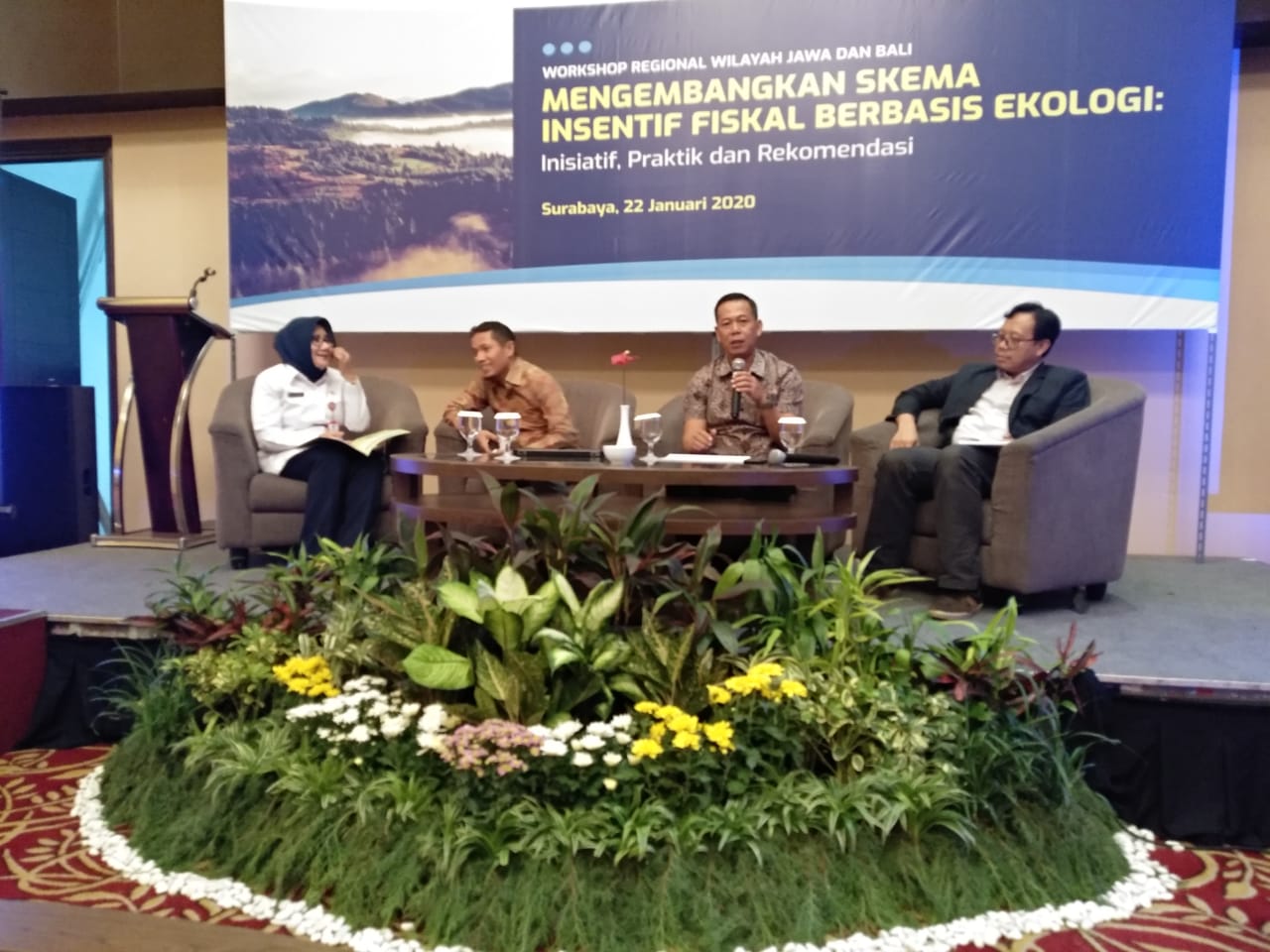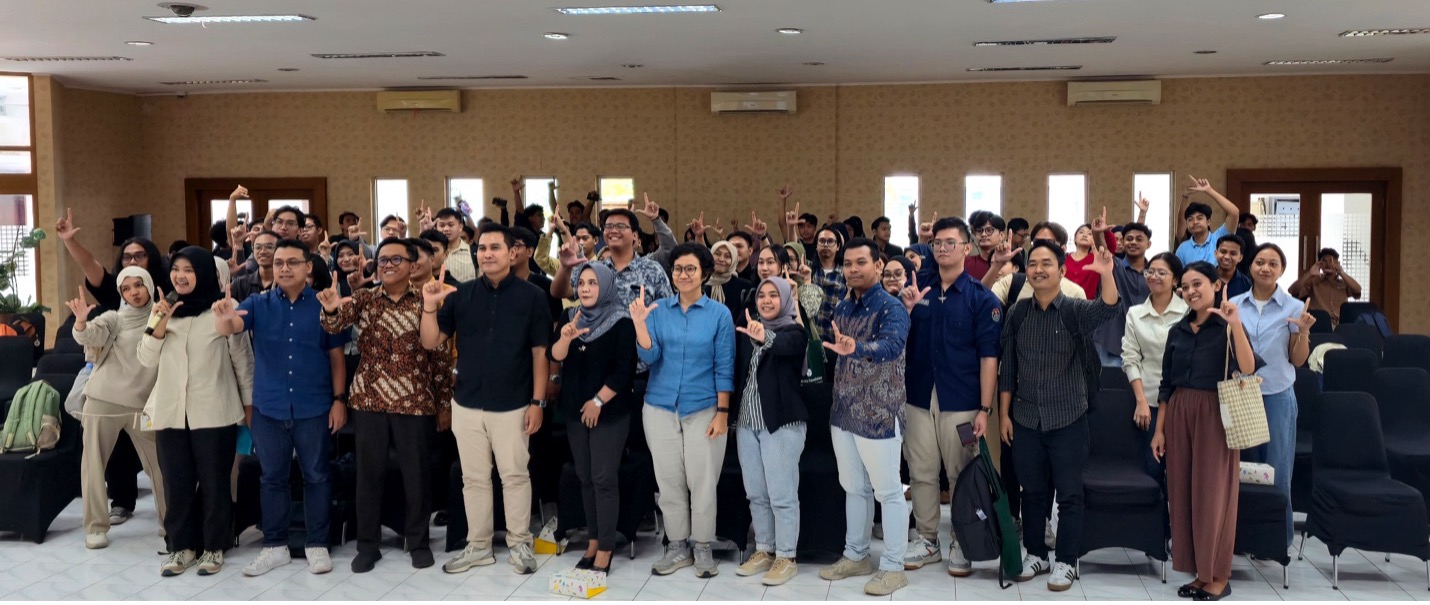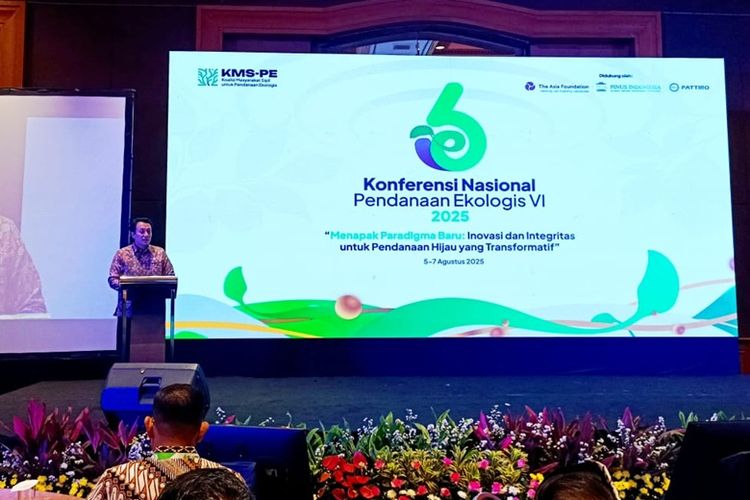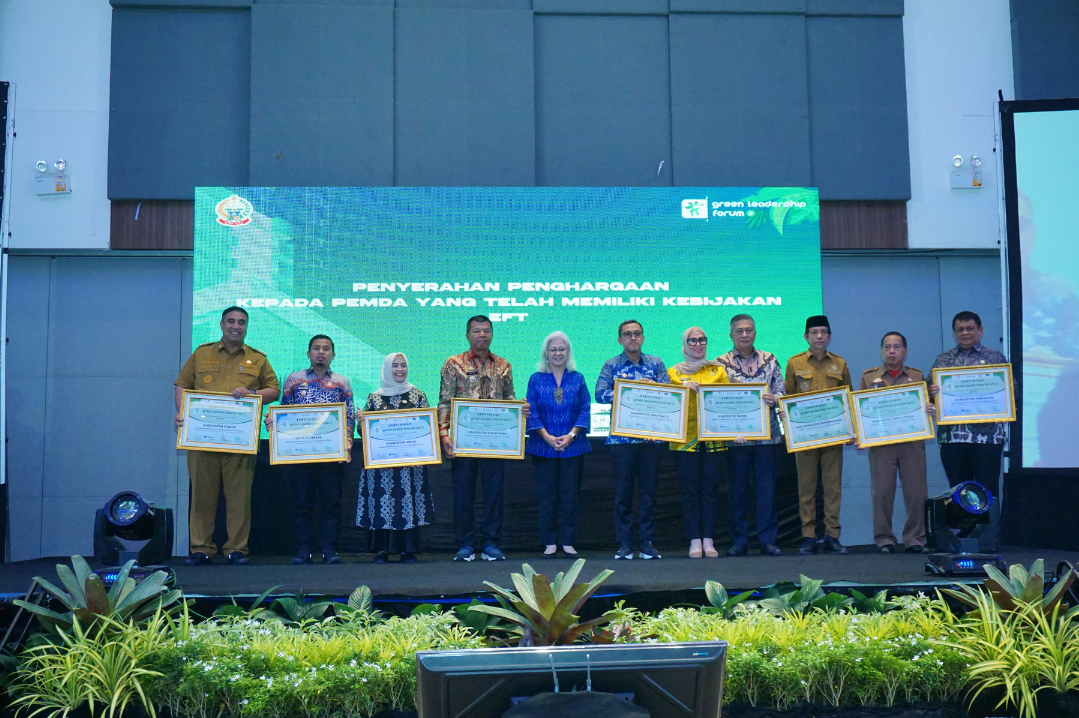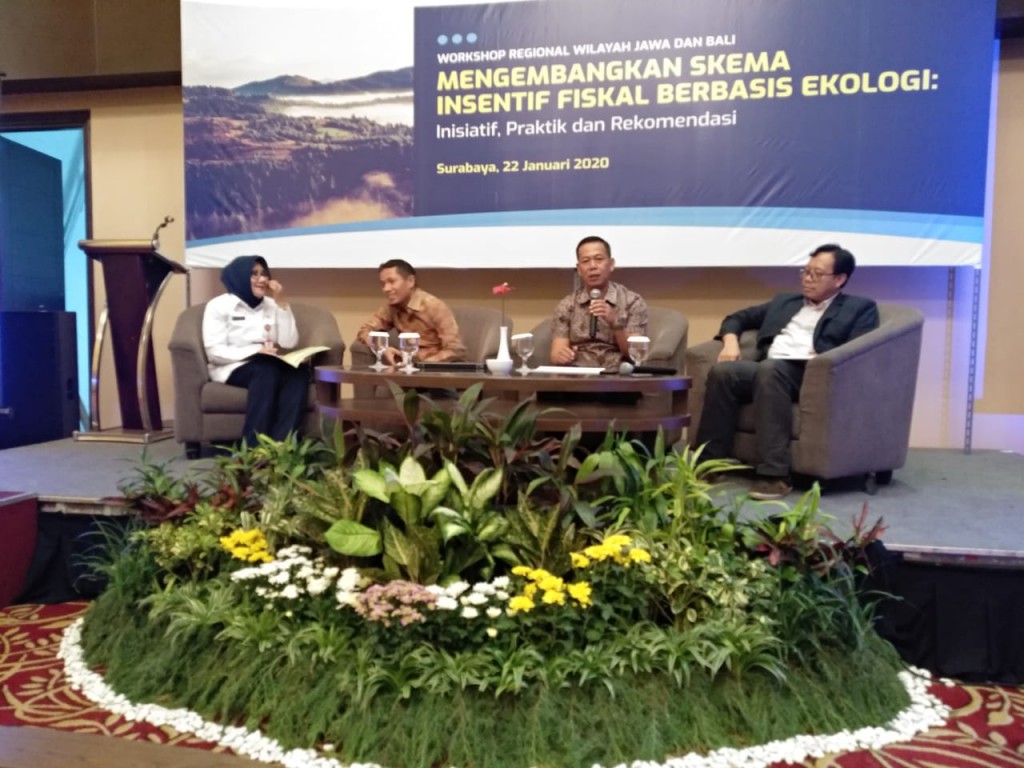
Author: Nurjanah
A number of representatives of provincial, district/city governments, civil society organizations and academics attended the Workshop “Developing Ecology-Based Fiscal Incentive Schemes” which was held on 22 January 2020 in Surabaya by PATTIRO and The Asia Foundation (TAF). At the workshop also present were representatives from the Fiscal Policy Agency, Ministry of Finance (Ministry of Finance); and the Directorate General of Forestry Planning and Environmental Management, Ministry of Environment and Forestry (KLHK).
Ecological fiscal transfer (EFT), according to the Deputy Director of the SETAPAK TAF Program, Alam Surya Putra, is a fiscal incentive given to regions that are committed to environmental and forestry development. The scheme developed by TAF and the civil society network has three schemes, namely: Ecology-based National Budget Transfer (TANE) which is implemented at the central level; Ecology-based Provincial Budget Transfers (TAPE) are carried out at the provincial level; and Ecology-based District Budget Transfer (TAKE) at the district level. The TAPE and TAKE schemes are already running in several areas, including North Kalimantan Province and Jayapura Regency. Several other regions are in the process of discussing using this scheme, including the provinces of Papua, West Papua, East Kalimantan, Riau and Aceh. Meanwhile, the TANE scheme is still in the discussion process to sharpen the concept. According to Alam, in principle the three schemes do not increase the budget, but rather reformulate the allocation mechanism. Apart from that, it is also a manifestation of the regional government’s commitment to protecting forests, the environment and sustainable development.
On this occasion, the East Java Provincial Government, represented by the Head of the Environmental Service, Diah Susilowati, gave a speech and opened the event. Diah said that, the province is ready if the TAPE scheme is to be developed, on the grounds that it has a large population and ecological potential. “We are also very committed to environmental preservation. “One of the proofs of this commitment is that East Java already has environmental management performance information data (IKPLHD), from this data the environmental quality index (IKLH) can be calculated,” he said.
Meanwhile, the Head of Bappeda for North Kalimantan Province (Kaltara), Dt Iqro said, that his province is committed to protecting forests well, and to maintain and maintain them, requires the involvement of all parties, namely both the local government, the private sector and the community. According to him, one form of commitment to protecting the environment is through providing incentives from the provincial government to district/city governments. The North Kalimantan Provincial Government has implemented this by using the TAPE scheme.
At this forum, responses came from several districts/cities, including the representative of the Sukabumi Regency Bappeda, Jalaluddin Mukti, who stated that the TAKE and TAPE schemes were input for his government. “However, on the other hand, what is developed in this scheme will clash with the orientation of regional leaders. In fact, regional leaders will calculate whether the investment that will be made for the environment by the regional government will be commensurate with the incentives received?”, he said. Meanwhile, according to the Head of Research and Development at Bappeda Pandeglang Regency, Asep Muslim. “If this scheme is initiated, there is a policy, and there is a recommendation from the center and it is binding, I think the regions will follow.” So, for the environment, this can become mainstream to avoid natural disasters, he added.
Researcher at the Fiscal Policy Agency of the Ministry of Finance, Joko Tri Haryanto, stated that this EFT scheme can be used by local governments to manage environmental funds. So far, regions have encouraged efforts to maintain the environment and forestry, but this commitment has not been reflected in regional budget policies. Joko also added that this scheme was appropriate to use as an alternative that could respond to regional demand.
Meanwhile, the Head of Sub-Directorate for Environmental Impact Prevention, Regional and Sector Policy, KLHK, Rahayu, stated that the EFT scheme is closely related to Presidential Regulation Number 46 of 2017 concerning Economic Instruments for Environmental Services. According to him, even though the TAPE and TAKE approaches are different, namely assistance from higher to lower government, while these environmental services economic instrument has the same approach, the two schemes can be integrated to overcome environmental problems.

